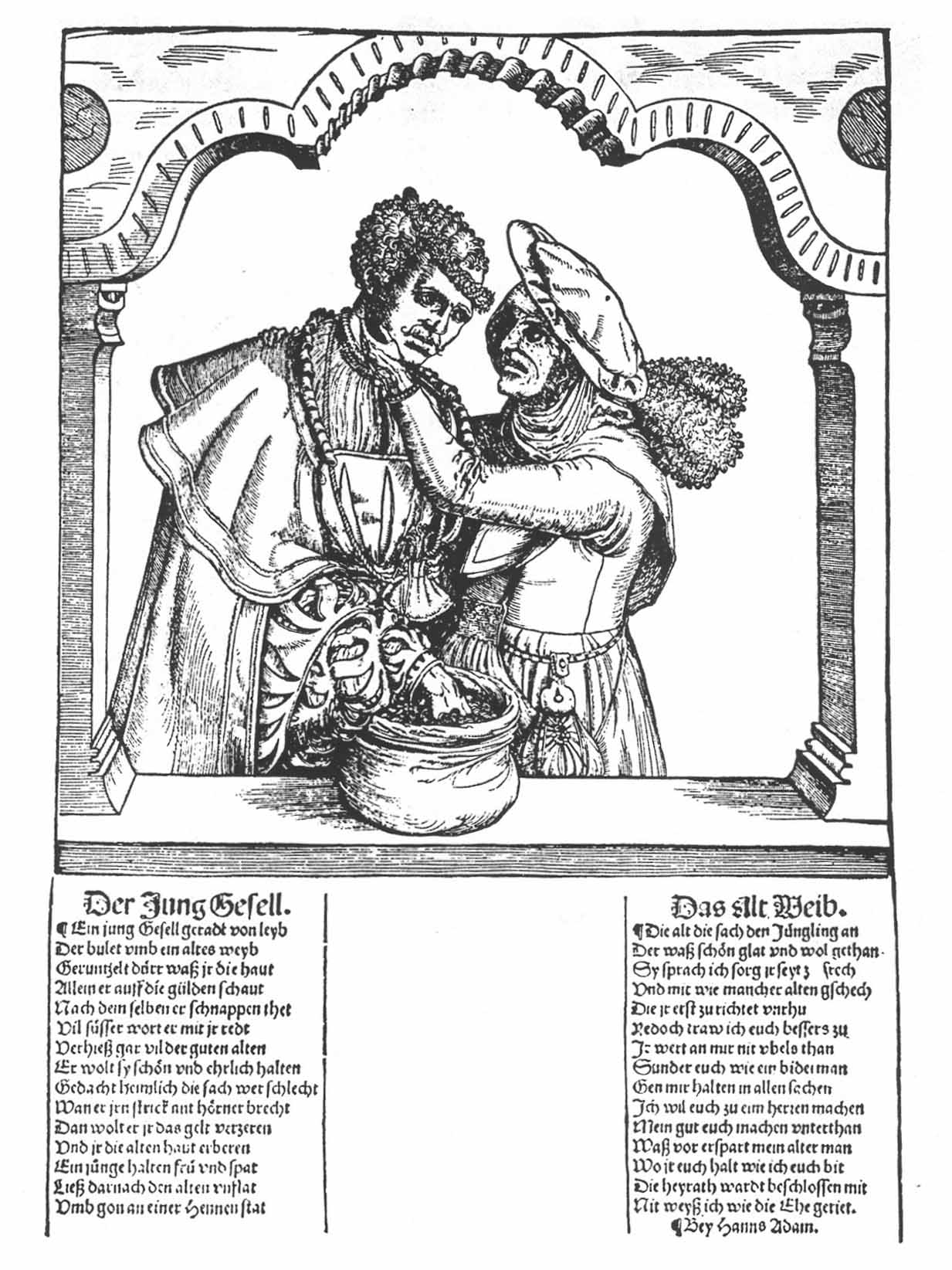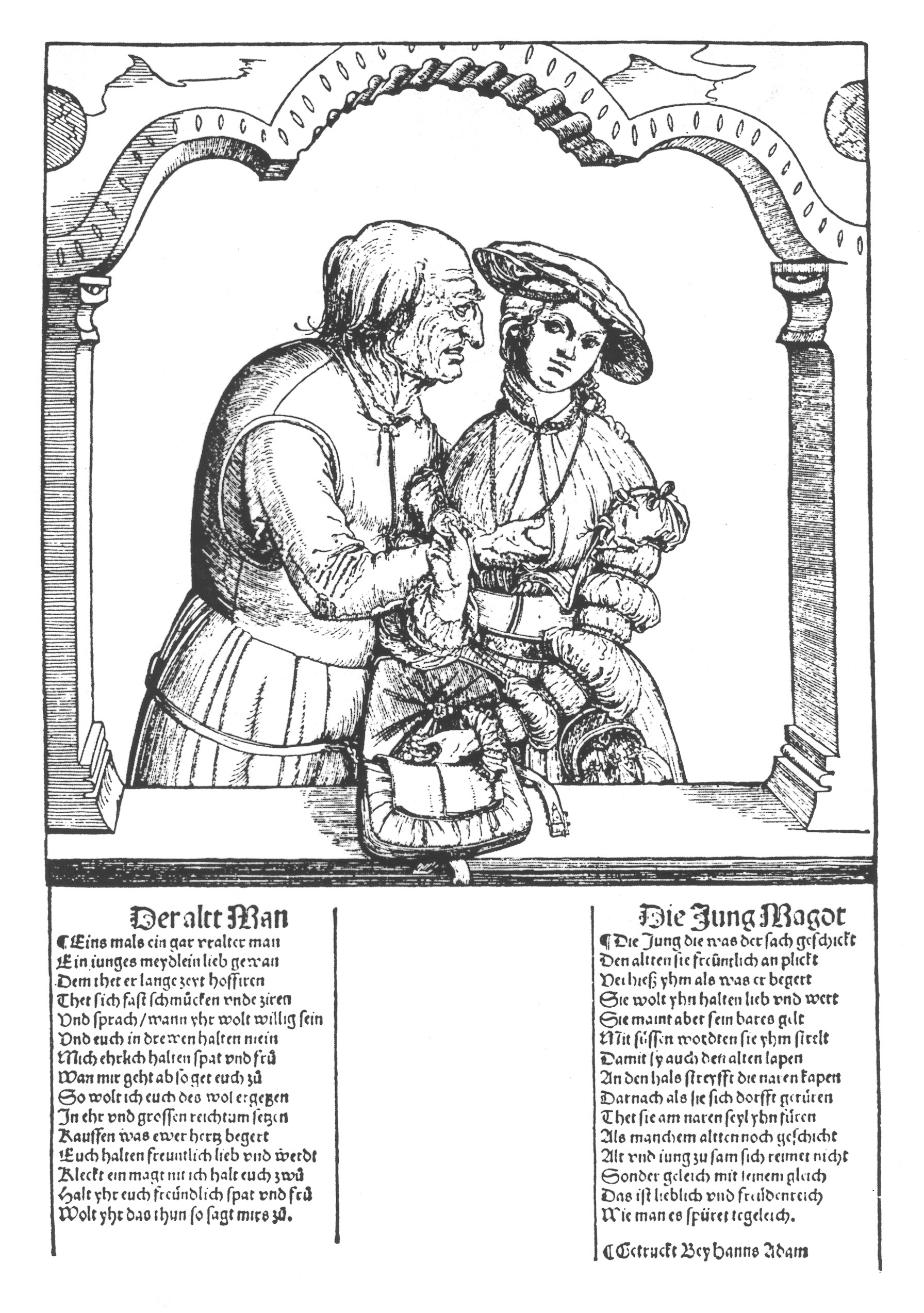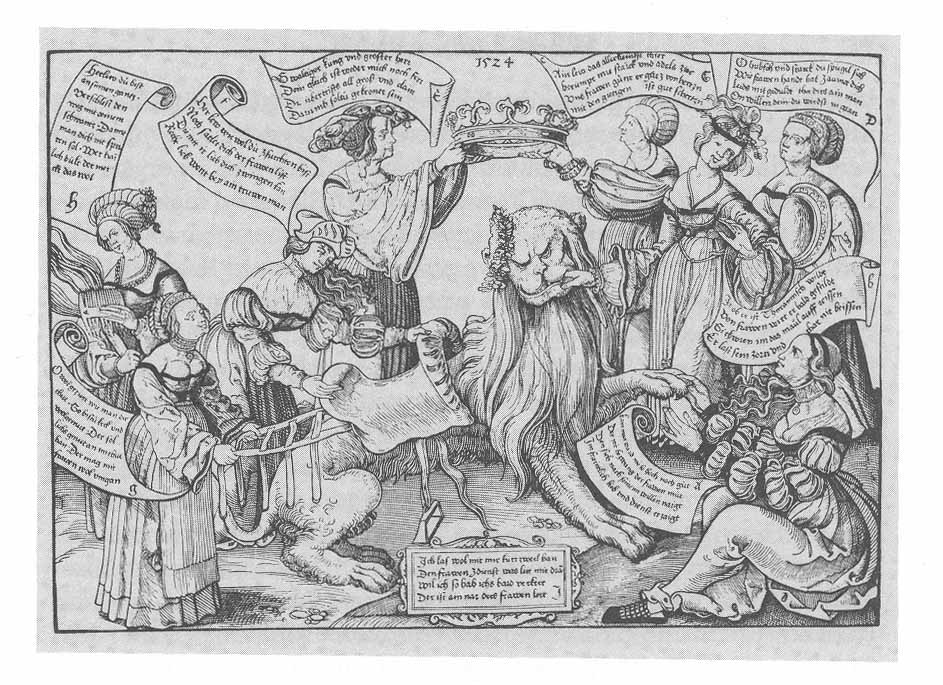
The Young Man:
A young man, fine of body,
Made love to an old widow,
Whose skin was wrinkled and hard.
He thought only of her money.
Afterward he conversed idly,
Plying her with sweet words and promising many
things,
Saying how he wanted to support her honorably,
While all the while thinking to himself
Of the time when he would dominate her.
Then he would spend all her money
And thrash that old hide soundly.
Restrain an young man both day and night,
For he will flee an old creature
And visit the chicken coop.
The Old Widow:
The old widow looked on the young man,
Who was beautifully smooth and well-shapen,
And said: I worry that you are too rude
And that what has happened to so many other widows
Will also happen to me after our first quarrel.
Still, I will hope better of you,
That you will do me no harm,
And treat me with honor in all things.
I will make you a lord
And give you the property
Amassed by my first husband,
If only you will do as I bid.
The marriage occurred;
I do not know how it turned out.

